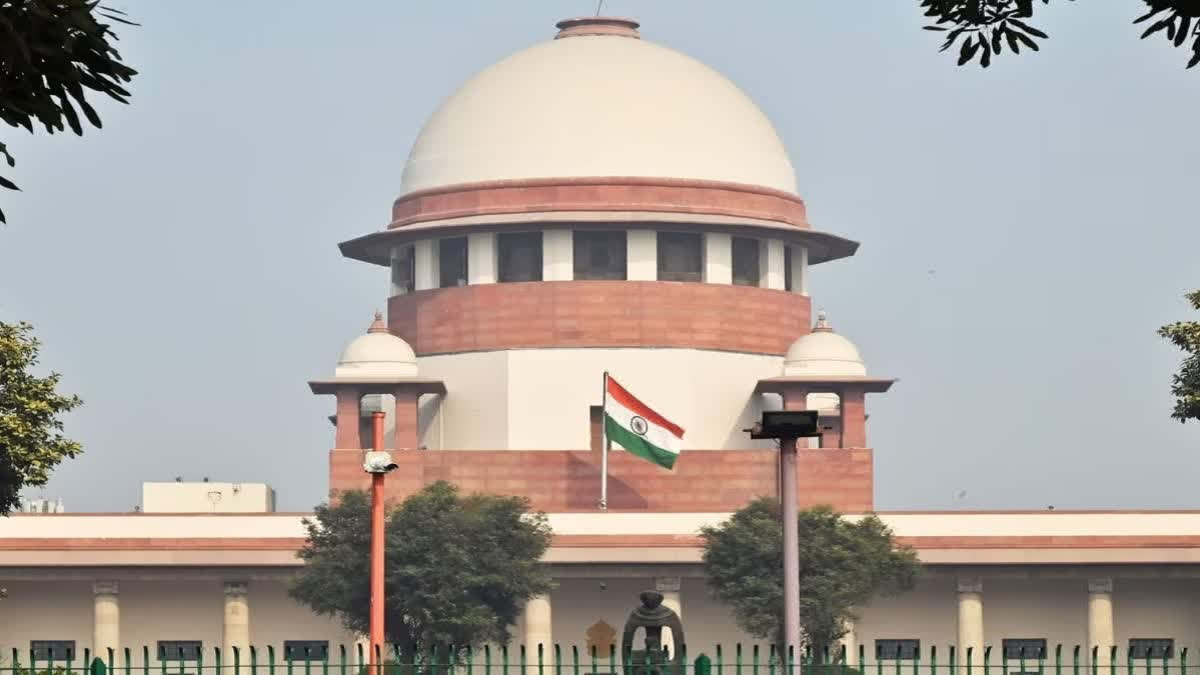New Delhi: The Supreme Court has said that sanction order should only be quashed if the court is satisfied that the “failure of justice had occurred by such error or irregularity or invalidity”. The apex court pronounced this while setting aside a verdict of the Punjab and Haryana High Court, which quashed a sanction order in a corruption case.
A bench comprising justices Bela M Trivedi and Prasanna B Varale said, “In view of the settled legal position, the high court should not have quashed the sanction order and the consequent proceedings, unless it was satisfied that the failure of justice had occurred by such error or irregularity or invalidity”.
The bench, in a judgment delivered on January 7, said there is not a whisper in the impugned order of the high court, about any failure of justice having occurred on account of the impugned sanction order. “The high court also should not have entertained the petition for quashing the sanction order when the prosecution had already examined seven witnesses,” the bench noted.
The apex court delivered the judgment on an appeal filed by the Punjab government assailing the verdict of the high court delivered in May 2019. The high court had allowed a plea by one Hari Kesh seeking quashing of a sanction order in a case registered under Sections 7 and 13(2) of the Prevention of Corruption Act, 1988.
The Punjab government counsel had argued that the high court had passed the order when the trial had already commenced and the prosecution had already examined seven witnesses. However, the counsel for the respondent-accused submitted that the high court has rightly quashed the proceedings considering the fact that earlier, sanction sought was not granted by the competent authority and now, the impugned sanction order has been passed by an officer who was not competent to grant the sanction to prosecute the respondent-accused.
The apex court considered the question, whether the high court could have set aside the sanction order and the proceedings arising therefrom, more particularly, when the trial had already commenced and the prosecution had examined seven witnesses.
The bench said, in the instant case, it appears that the petition for quashing the sanction order was filed by the respondent after the trial court framed the charge and commenced the trial.
The bench said it is pertinent to note that whether the sanction has been granted by the competent authority or not, would be a matter of evidence. “In view of that, we are of the opinion that the high court has committed gross error in quashing the sanction order and the consequent proceedings vide the impugned order,” said the apex court.
Setting aside the judgment of the high court, the bench said, “The proceedings arising out of the case being, are restored on file before the Special Court-Sangrur and they shall be proceeded further from the stage at which the proceedings were stopped, in accordance with law.”
The apex court clarified that it has not expressed any opinion on the merits of the case and the respondent-accused shall be at liberty to raise all contentions as may be legally permissible with regard to sanction during the course of the trial.
Read More
Unfair To Deny Maintenance To Estranged Wife Who Refuses To Cohabit With Husband: Supreme Court



